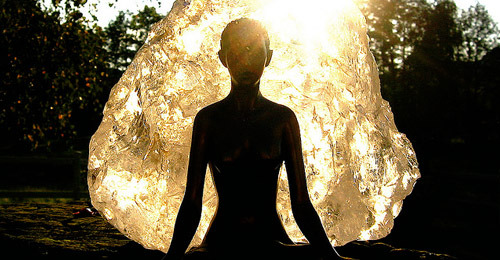 With the release of Waking Up, Sam Harris has brought the subject of ‘spirituality’ to the table. Different people have stated their position on the matter, so here’s mine.
With the release of Waking Up, Sam Harris has brought the subject of ‘spirituality’ to the table. Different people have stated their position on the matter, so here’s mine.
Although it usually shelters charlatans and religionists, I think in this particular case, semantics matter. A lot.
The word “spirituality” has a meaning and an etymological burden we should not ignore. The spiritual and its realm are, by definition, the denial of matter. Ever since Plato came up with the ridiculous theory of ideas, everything that has been done in its name —rivers of ink wasted on ‘metaphysics’; contempt of the flesh, pleasure, sex and laughter; the war on drugs, persecution of materialistic authors; the condemnation of prostitution and pornography; and cilice belts— has been nefarious.
I refuse to fall into this toxic dichotomy. Everything that exists is material and there’s no evidence to the contrary. I’m not going to fuel the absurd and ridiculous notions that atheists do not have emotions or nothing to live for, or that we are Spockian (?); that annoying cliché that stems from metaphysics. The opposite of intelligence and logic are not the emotions, but stupidity and ignorance.
Emotions and any sense of transcendence that we had can be linked directly to our brain. We are our brain! And the fact that we can’t yet fully explain how the strongest emotions occur doesn’t mean we should jump to delusional conclusions — let the god of the gaps and other examples of appealing to ignorance be a monopoly of charlatans like Deepak Chopra.
Sorry to burst your bubble but, just like Sam Harris has said already, everything we do we do to alter our state of consciousness:
Everything we do is for the purpose of altering consciousness. We form friendships so that we can feel certain emotions, like love, and avoid others, like loneliness. We eat specific foods to enjoy their fleeting presence on our tongues. We read for the pleasure of thinking another person’s thoughts. Every waking moment—and even in our dreams—we struggle to direct the flow of sensation, emotion, and cognition toward states of consciousness that we value.
Achieving states of consciousness that we value a lot should not be diminished with euphemisms about the immateriality of the experience. I understand that these highly emotional moments can be a milestone in the spectrum of a person’s feelings, and there are words for it, such as “transcendence”.
I have myself lived so emotionally intense moments I have felt —and desired— that time stops and everything has a solution, that for a second there was nothing wrong with the world. I cherish these within my fondest memories and it would be wrong to belittle them with explanations that deny its most basic precondition: the materiality of existence.
For me, understanding the sensory experience and states of consciousness —however limited is the state of that knowledge— doesn’t make them less magical or special the same way understanding how optical illusions work makes them no less exciting. And the opposite is also true: I’m not going to insult the magic of a moment and the emotions it may conjure covering it with layers of mysticism and metaphysical gibberish.
(Image: AlicePopkorn via photopin cc)
